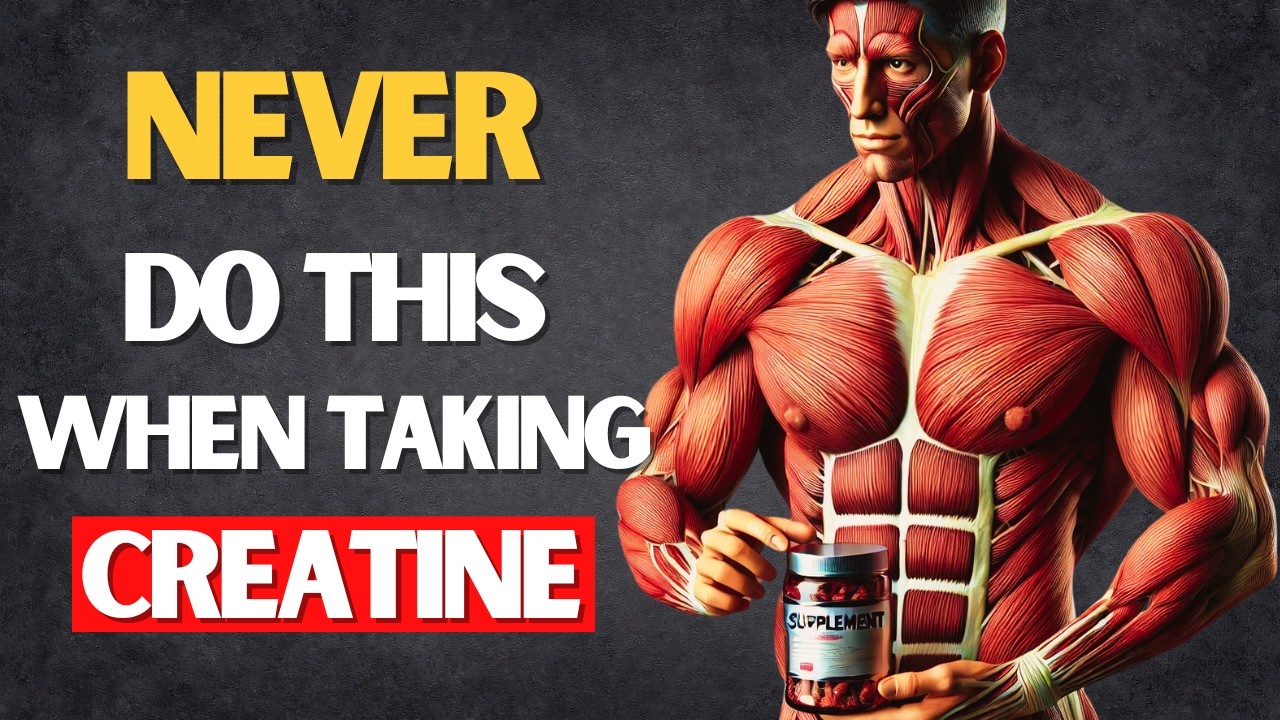Why you're not growing muscle: Hydration
Summary
TLDRThis video script humorously explains the importance of hydration for better workout performance. It covers the negative effects of dehydration on muscle function, focus, and overall workout quality. The script provides practical tips on how to stay hydrated by drinking enough water and replenishing electrolytes, emphasizing that hydration is crucial for avoiding cramps, brain fog, and fatigue. With light-hearted language and relatable examples, it encourages viewers to monitor their hydration status through simple methods like checking urine color, eating electrolyte-rich foods, and drinking water throughout the day to keep workouts optimal and avoid burnout.
Takeaways
- 😀 Staying hydrated is crucial for your workout performance and overall muscle function.
- 💪 Dehydration leads to muscle malfunction, less oxygen and nutrients for muscles, and reduced pump during workouts.
- 🚶♂️ Dehydration makes cardio harder and can make you feel like you're on a 'death march'.
- 🧠 Brain fog and lack of focus are common side effects of dehydration, affecting workout quality.
- ⚡ Dehydration increases the risk of cramps, which can seriously disrupt your training.
- 🥵 When you're dehydrated, everything feels harder: low energy, poor mood, and a decreasing health bar in the gym.
- 💧 To stay hydrated, drink water throughout the day and keep a water bottle with you for easy access.
- 🟡 Check your pee color to monitor hydration: pale yellow means good, dark yellow means drink more, brown means call a doctor.
- 🍌 Get essential electrolytes like potassium (bananas), magnesium (spinach), and sodium (salt) to maintain proper hydration balance.
- 🍫 Dark chocolate can provide magnesium, which is a hydration booster and a treat for chocolate lovers.
- 🥤 During workouts, drink water regularly—three big gulps every third set—and replenish electrolytes if needed, especially after sweating heavily.
Q & A
Why is hydration important during workouts?
-Hydration is crucial because it ensures that your muscles work properly, helps maintain blood volume for oxygen and nutrient delivery, and prevents muscle cramps and fatigue. Without adequate hydration, performance suffers, and recovery is slower.
What happens when you're dehydrated during a workout?
-When you're dehydrated, your blood volume drops, limiting oxygen and nutrient supply to your muscles. This leads to reduced muscle performance, fatigue, cramps, brain fog, and poor coordination, making your workout much harder.
How does dehydration affect muscle pumps?
-Dehydration kills the muscle pump because your muscles need water to retain glycogen and stay full. Without enough water, muscles lose volume and become less 'juicy,' similar to dried-out beef jerky.
What role do electrolytes play in hydration?
-Electrolytes like sodium, potassium, magnesium, and calcium are vital for muscle contraction, heart function, and maintaining fluid balance. Without them, muscle cramps can occur, and workouts become less effective.
What are some good sources of electrolytes?
-Good sources of electrolytes include bananas for potassium, spinach for magnesium, and salt for sodium. You can also eat dark chocolate for magnesium and use electrolyte powders if you're sweating a lot during workouts.
How can you tell if you're properly hydrated?
-You can check your hydration by monitoring your urine color. If it's pale yellow, you're well-hydrated. If it's dark yellow, you need to drink more water. Clear urine may indicate overhydration, which can flush out electrolytes.
How much water should you drink during a workout?
-It's recommended to take a few big gulps of water every third set during your workout. A general guideline is to drink around 1.5 liters of water from the time you arrive at the gym until you get home.
How long does it take to rehydrate after dehydration?
-Rehydrating after dehydration isn't immediate. It can take a few days for your body to fully replenish lost water and electrolytes, so it's important to stay consistent with hydration.
What should you do if your urine is dark yellow or brown?
-If your urine is dark yellow or brown, it's a sign of severe dehydration. You should immediately increase your water intake and consult a doctor if the color doesn't improve.
How can I make hydration easier during my day?
-To stay hydrated, carry a water bottle with you throughout the day, take sips regularly, and monitor your urine color to ensure you're drinking enough water.
Outlines

Cette section est réservée aux utilisateurs payants. Améliorez votre compte pour accéder à cette section.
Améliorer maintenantMindmap

Cette section est réservée aux utilisateurs payants. Améliorez votre compte pour accéder à cette section.
Améliorer maintenantKeywords

Cette section est réservée aux utilisateurs payants. Améliorez votre compte pour accéder à cette section.
Améliorer maintenantHighlights

Cette section est réservée aux utilisateurs payants. Améliorez votre compte pour accéder à cette section.
Améliorer maintenantTranscripts

Cette section est réservée aux utilisateurs payants. Améliorez votre compte pour accéder à cette section.
Améliorer maintenantVoir Plus de Vidéos Connexes

what to eat before and after a workout to lose fat & gain muscle

10 Mistakes You SHOULD NEVER MAKE When Taking CREATINE

Alimentação pré e pós-treino | Alimentação e Atividade Física | IMEB

How To Plan A Swim Workout | Structure Your Next Swimming Session

Avoid These Mistakes, Don't Hit The Wall!

Exercise Scientist’s FASTEST Way To GAIN Muscle
5.0 / 5 (0 votes)
